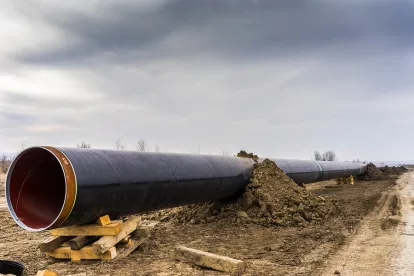A dispute over the proposed extension of a natural gas pipeline project lies at the forefront of this fight.
The Lambert compressor station, a natural gas facility in rural Virginia, if approved, would extend the 303-mile Mountain Valley pipeline project by 75 miles into North Carolina. Opponents of the project argue that the proposed expansion would adversely impact the health of low-income and majority African-American residents of Banister District in Pittsylvania County, Virginia. These arguments are being made in front of the Virginia Air Pollution Control Board in an effort to obtain a denial of a key approval being sought by the developers of the project.
Analysts believe that a denial would be a big step in the fight for environmental justice. This begs the question: what is environmental justice? According to the U.S. Environmental Protection Agency, environmental justice is the fair treatment and meaningful involvement of all people regardless of race, color, national origin, or income with respect to the development, implementation and enforcement of environmental laws, regulations and policies.[1]
Political, legal and societal pressures are creating debates around pipeline projects throughout the country, the most notable of them being the Keystone XL oil conduit to the Atlantic Coast. Developers are revising or, in some cases, abandoning mature natural gas projects due to these pressures and strong advocacy and activism in favor of environmental justice. Recently, for example, the developers of the Byhalia Connection crude oil pipeline in Memphis walked away from the project due to upheaval over the proposed project’s disparagingly adverse impact on African-American neighborhoods.[2] Grassroots activism, voices as powerful as the President’s[3] and as well-respected as George Thurston’s, a New York University expert on the health effects caused by air pollution, have made clear to natural gas pipeline developers that environmental justice is to be taken seriously.
These efforts have not only spurred cancellations or terminations of significant energy projects. They have also led to the creation of projects, ventures and initiatives that further environmental justice, especially in the renewable energy sector. Earlier this month, for instance, Microsoft announced a partnership with Volt Energy, a national minority-owned solar development firm, pursuant to which Volt will supply Microsoft with 250 MW of utility-scale solar energy. Volt and Microsoft both pledged to invest a portion of the revenue derived from this partnership in underserved minority communities.[4]
Virginia’s Air Pollution Control Board has a big decision to make. Last year, the 4th U.S. Circuit Court of Appeals ruled that a different project, the Atlantic Coast pipeline project, could not go ahead[5]. The Court held that this same Board had failed to carefully account for the disproportionate harm of the project to surrounding residents.[6] The Board now has to decide: will the Lambert project live or will the possibly emerging trend in favor of environmental justice see the project suffer the same fate of some other pipeline projects of recent times? This case could prove to be a bellwether in the larger national environmental justice debate.
[1] Learn About Environmental Justice | US EPA
[3] President Biden's Environmental Justice Plan
[4] Microsoft Enters 250-MW Solar Power PPA with Volt Energy






 />i
/>i
